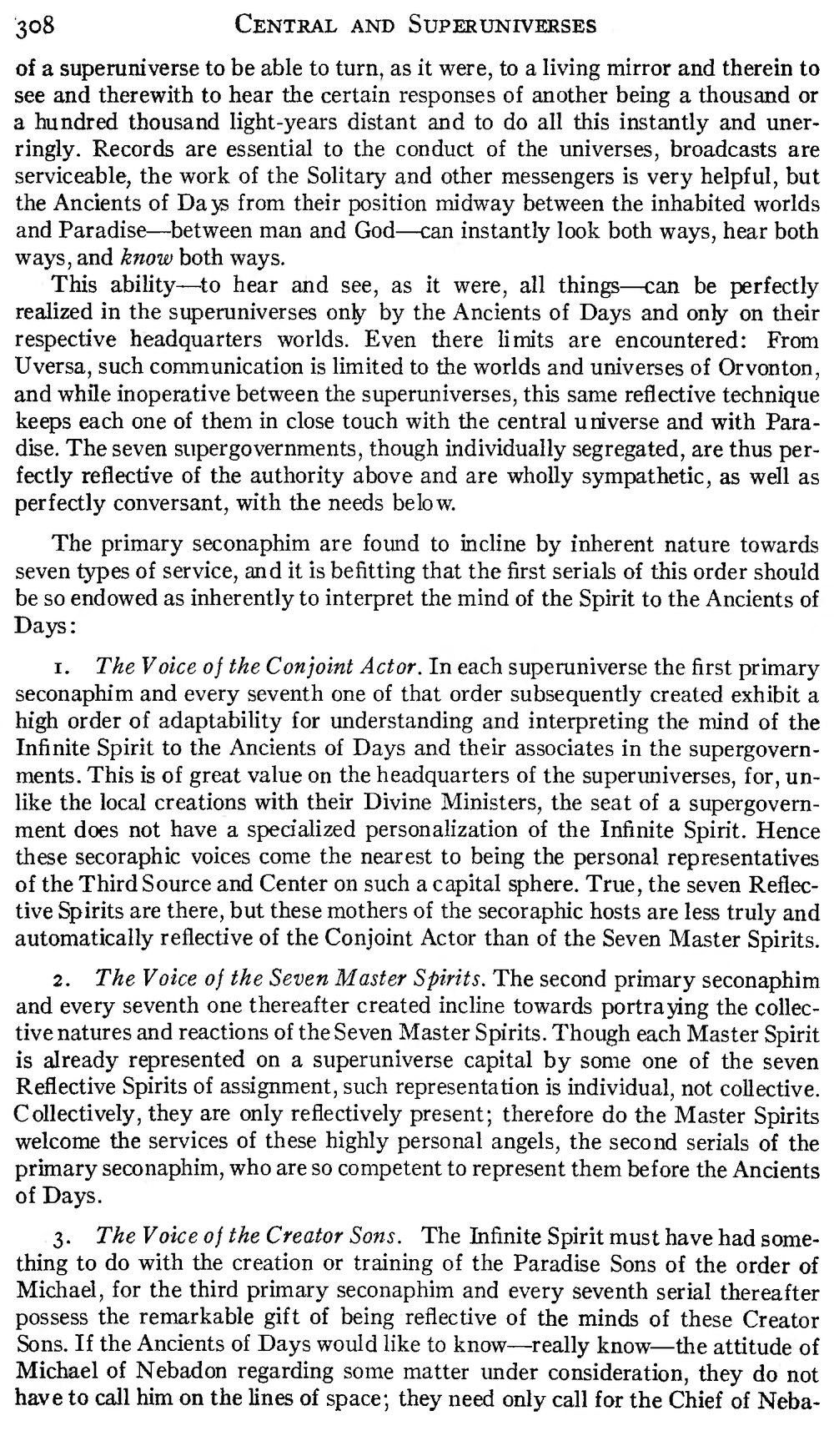of a superuniverse to be able to turn, as it were, to a living mirror and therein to see and therewith to hear the certain responses of another being a thousand or a hundred thousand light-years distant and to do all this instantly and unerringly. Records are essential to the conduct of the universes, broadcasts are serviceable, the work of the Solitary and other messengers is very helpful, but the Ancients of Days from their position midway between the inhabited worlds and Paradise—between man and God—can instantly look both ways, hear both ways, and know both ways.
This ability—to hear and see, as it were, all things—can be perfectly realized in the superuniverses only by the Ancients of Days and only on their respective headquarters worlds. Even there limits are encountered: From Uversa, such communication is limited to the worlds and universes of Orvonton, and while inoperative between the superuniverses, this same reflective technique keeps each one of them in close touch with the central universe and with Paradise. The seven supergovernments, though individually segregated, are thus perfectly reflective of the authority above and are wholly sympathetic, as well as perfectly conversant, with the needs below.
The primary seconaphim are found to incline by inherent nature towards seven types of service, and it is befitting that the first serials of this order should be so endowed as inherently to interpret the mind of the Spirit to the Ancients of Days:
1. The Voice of the Conjoint Actor. In each superuniverse the first primary seconaphim and every seventh one of that order subsequently created exhibit a high order of adaptability for understanding and interpreting the mind of the Infinite Spirit to the Ancients of Days and their associates in the supergovernments. This is of great value on the headquarters of the superuniverses, for, unlike the local creations with their Divine Ministers, the seat of a supergovernment does not have a specialized personalization of the Infinite Spirit. Hence these secoraphic voices come the nearest to being the personal representatives of the Third Source and Center on such a capital sphere. True, the seven Reflective Spirits are there, but these mothers of the secoraphic hosts are less truly and automatically reflective of the Conjoint Actor than of the Seven Master Spirits.
2. The Voice of the Seven Master Spirits. The second primary seconaphim and every seventh one thereafter created incline towards portraying the collective natures and reactions of the Seven Master Spirits. Though each Master Spirit is already represented on a superuniverse capital by some one of the seven Reflective Spirits of assignment, such representation is individual, not collective. Collectively, they are only reflectively present; therefore do the Master Spirits welcome the services of these highly personal angels, the second serials of the primary seconaphim, who are so competent to represent them before the Ancients of Days.
3. The Voice of the Creator Sons. The Infinite Spirit must have had something to do with the creation or training of the Paradise Sons of the order of Michael, for the third primary seconaphim and every seventh serial thereafter possess the remarkable gift of being reflective of the minds of these Creator Sons. If the Ancients of Days would like to know—really know—the attitude of Michael of Nebadon regarding some matter under consideration, they do not have to call him on the lines of space; they need only call for the Chief of Neba-

